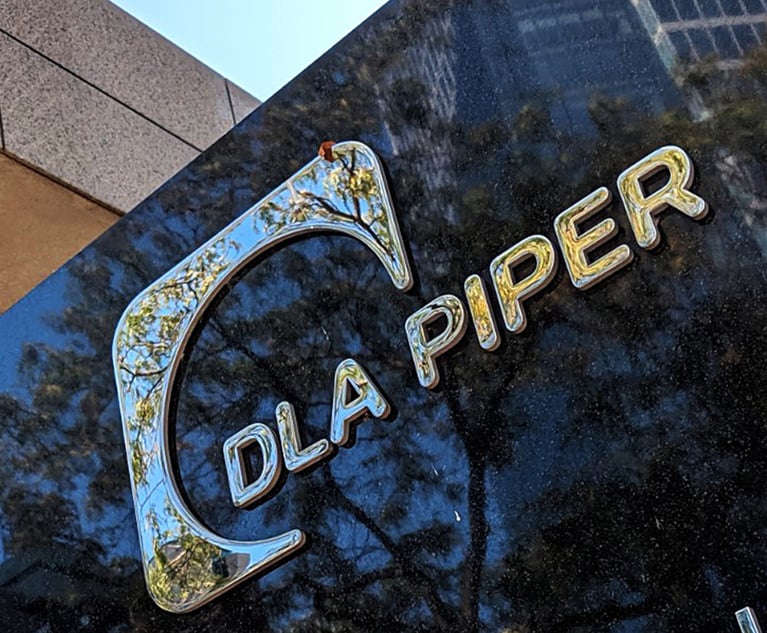Plaintiffs, Defense Lawyers Ask Texas Supreme Court To Tweak COVID-19 Limitations Order
Litigators say the Texas Supreme Court's COVID-19 order allowing the tolling of the statute of limitations will cause each of the state's 254 counties to have a different limitations rule. They want the high court to make one limitations rule for the whole Lone Star State.
March 30, 2020 at 11:49 AM
3 minute read
 Photo: Min C. Chiu/Shutterstock.com
Photo: Min C. Chiu/Shutterstock.com
Facing a different statute of limitations in each of Texas' 254 counties doesn't appeal to civil litigators, who are pushing the Texas Supreme Court to change a provision in a COVID-19 emergency order.
The high court in its very first emergency order gave Texas courts the discretion to extend limitations during the pandemic.
But in a letter to the high court, a coalition of bar associations and plaintiffs and defense attorneys associations took issue with the part of the March 13 first emergency order that said, "All courts in Texas may extend the statute of limitations in any civil case for a stated period ending no later than 30 days after the governor's state of disaster has been lifted."
The tricky part is the word, "may," explained Jim Perdue Jr., president-elect of the Texas Trial Lawyers Association, who started reaching out to legal organizations about the issue.
That word gives each court in Texas the discretion to extend— or not to extend—limitations. It could mean each of the counties in Texas—or even different courts in the same county—observe a different statute of limitations until the coronavirus pandemic is over.
The coalition in the letter includes presidents of the State Bar of Texas, the bar's litigation section, and bar associations in Austin, Dallas, Houston and San Antonio. Also, the Texas Chapter of the American Board of Trial Advocates, Texas Association of Defense Counsel, and Texas Trial Lawyers Association signed on.
Related story:
Texas Supreme Court Can Now Issue Emergency Orders After Governor's Declaration
The letter suggests two proposals for the Supreme Court to fix the issue.
The first idea is that the Supreme Court should make it mandatory statewide for the civil statute of limitations to be tolled from March 13, to 75 days after the governor lifts his state of disaster order.
The second proposal is that if a lawsuit faced a deadline that fell between March 1 and 30 days after the state of disaster order is lifted, then that deadline ought to be extended until 75 days after the disaster declaration is over.
The coalition agrees the high court should put out "a clear-non-permissive order relating to the statute of limitations," because it would help parties and all lawyers.
When Perdue emailed the letter to Texas Supreme Court Clerk Blake Hawthorne and to Rules Attorney Jaclyn Daumerie, he explained that all of the legal groups that signed the letter agreed that some change needs to happen, but the court should do the final analysis on the two proposals.
"I hope the court will consider this request as well founded, with broad support in the bar, and offered in the hopes that practices can be helped by this clarification in these quite challenging times," Perdue wrote in the email.
Perdue said in an interview, "We'll just see what the court does."
Read the coalition's letter:
NOT FOR REPRINT
© 2024 ALM Global, LLC, All Rights Reserved. Request academic re-use from www.copyright.com. All other uses, submit a request to [email protected]. For more information visit Asset & Logo Licensing.
You Might Like
View All
From ‘Deep Sadness’ to Little Concern, Gaetz’s Nomination Draws Sharp Reaction From Lawyers
7 minute read
DLA Piper Sued by 2 Houston Companies, Alleging a 'Fake Lawyer' Represented Them in Argentina
3 minute read

Trending Stories
- 1Simpson Thacher Replenishes London Ranks With Latest Linklaters Defection
- 2Holland & Knight, Akin, Crowell, Barnes and Day Pitney Add to DC Practices
- 3Squire Patton Boggs Associate Among Those Killed in String of Methanol Poisonings
- 4Womans Suit Alleging Negligence to Sex Trafficking by Hotel Tossed by Federal Judge
- 5More Big Law Firms Rush to Match Associate Bonuses, While Some Offer Potential for Even More
Who Got The Work
Michael G. Bongiorno, Andrew Scott Dulberg and Elizabeth E. Driscoll from Wilmer Cutler Pickering Hale and Dorr have stepped in to represent Symbotic Inc., an A.I.-enabled technology platform that focuses on increasing supply chain efficiency, and other defendants in a pending shareholder derivative lawsuit. The case, filed Oct. 2 in Massachusetts District Court by the Brown Law Firm on behalf of Stephen Austen, accuses certain officers and directors of misleading investors in regard to Symbotic's potential for margin growth by failing to disclose that the company was not equipped to timely deploy its systems or manage expenses through project delays. The case, assigned to U.S. District Judge Nathaniel M. Gorton, is 1:24-cv-12522, Austen v. Cohen et al.
Who Got The Work
Edmund Polubinski and Marie Killmond of Davis Polk & Wardwell have entered appearances for data platform software development company MongoDB and other defendants in a pending shareholder derivative lawsuit. The action, filed Oct. 7 in New York Southern District Court by the Brown Law Firm, accuses the company's directors and/or officers of falsely expressing confidence in the company’s restructuring of its sales incentive plan and downplaying the severity of decreases in its upfront commitments. The case is 1:24-cv-07594, Roy v. Ittycheria et al.
Who Got The Work
Amy O. Bruchs and Kurt F. Ellison of Michael Best & Friedrich have entered appearances for Epic Systems Corp. in a pending employment discrimination lawsuit. The suit was filed Sept. 7 in Wisconsin Western District Court by Levine Eisberner LLC and Siri & Glimstad on behalf of a project manager who claims that he was wrongfully terminated after applying for a religious exemption to the defendant's COVID-19 vaccine mandate. The case, assigned to U.S. Magistrate Judge Anita Marie Boor, is 3:24-cv-00630, Secker, Nathan v. Epic Systems Corporation.
Who Got The Work
David X. Sullivan, Thomas J. Finn and Gregory A. Hall from McCarter & English have entered appearances for Sunrun Installation Services in a pending civil rights lawsuit. The complaint was filed Sept. 4 in Connecticut District Court by attorney Robert M. Berke on behalf of former employee George Edward Steins, who was arrested and charged with employing an unregistered home improvement salesperson. The complaint alleges that had Sunrun informed the Connecticut Department of Consumer Protection that the plaintiff's employment had ended in 2017 and that he no longer held Sunrun's home improvement contractor license, he would not have been hit with charges, which were dismissed in May 2024. The case, assigned to U.S. District Judge Jeffrey A. Meyer, is 3:24-cv-01423, Steins v. Sunrun, Inc. et al.
Who Got The Work
Greenberg Traurig shareholder Joshua L. Raskin has entered an appearance for boohoo.com UK Ltd. in a pending patent infringement lawsuit. The suit, filed Sept. 3 in Texas Eastern District Court by Rozier Hardt McDonough on behalf of Alto Dynamics, asserts five patents related to an online shopping platform. The case, assigned to U.S. District Judge Rodney Gilstrap, is 2:24-cv-00719, Alto Dynamics, LLC v. boohoo.com UK Limited.
Featured Firms
Law Offices of Gary Martin Hays & Associates, P.C.
(470) 294-1674
Law Offices of Mark E. Salomone
(857) 444-6468
Smith & Hassler
(713) 739-1250






